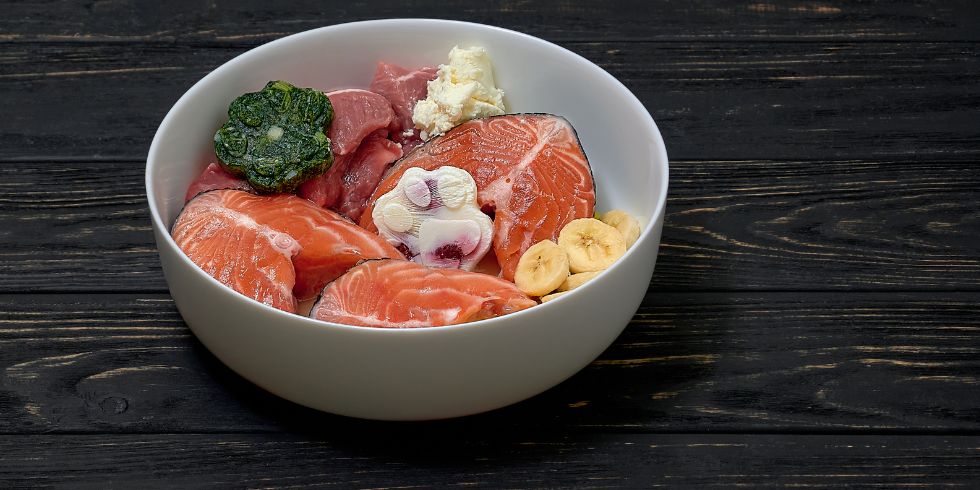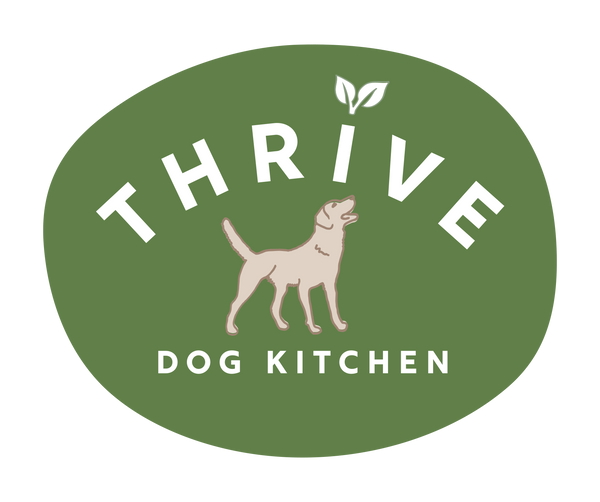
7 Things I Wish I Knew About Fresh Food Diets for Dogs
Share
Truth be told I didn’t know what it would be like when I started feeding Jessie a fresh whole food diet.
Looking back on our journey there are plenty of things I wish I knew before I started.
These are a few of our learnings:
- It doesn’t fix all your dog’s health issues - we started Jessie on a fresh food diet in hopes to help her lose weight, which it did. However, when other health issues showed up we needed to use other tools in our toolkit to support her. The fresh food diet definitely helped her through new health issues, but it did not fix everything.
- You don’t need to be a whizz at spreadsheets - As we transitioned Jessie to a homemade diet we worked out how much food she needed to eat on a weekly basis with a simple calculation based on her ideal weight and activity level. We then broke that down into set percentages of muscle meat, raw meaty bones, offal, heart, fruits, vegetables and other supplemental fresh foods as recommended by Dr. Karen Becker, DVM. Initially, we meticulously measured each component of Jessie’s food until we became more confident, rotating different proteins, fruits, vegetables and supplements to ensure her meals contained all the nutrients she needed to thrive.
- Your dog will think all of your food is their food - if you didn’t already have your dog lurking in your kitchen at meal time, they definitely will be by your side more often. Any bit of food whether meat, fruit or vegetable your dog will think it is theirs for the taking, especially bits that end up on the floor.
- Your vet may not support your decision - Fortunately for us, it was our veterinarian that suggested Jessie transition to a fresh food diet. However, many vets still recommend a conventional kibble diet as the best option for your dog because they may not have been taught what foods are best for your dog. They want the best for your dog, yet nutrition is a small component of their education that is often conducted by big pet food companies. This is where canine nutritionists, like myself, can support you to help educate your vet on the benefits of feeding a fresh food diet or even incorporating a small amount of fresh food.
- Your dog’s poop will be smaller and less frequent - and, it will take a more firm and solid consistency. Poop patrol becomes much easier when your dog eats more fresh foods. Monitoring your dog’s poop is also a good indicator of how their body takes to the variety of foods they are eating.
- Freezer space comes at a premium - We were very lucky that when we embarked on our fresh feeding journey we had recently moved to a house with a garage. This allowed us to have the space to purchase a chest freezer for Jessie. While it would have been more challenging to feed Jessie a fresh food diet without the storage space, I would be up for it. Instead of prepping meals for a month, we would need to prep meals on a weekly or possibly a daily basis, but it is achievable.
- Your dog will probably eat better than you - It’s true, the number of times my family comments on the quality of Jessie’s meals and the time I spend making them is too many to count. Creating Jessie’s meals sparked a creative outlet in me to often make “pretty bowls.” Though, creating a “messy bowl” is just as much fun because Jessie doesn’t care what the food looks like, as long as she gets to eat it. Like me, you may think more about the foods you feed you and your family that leads to changes for the better.
Transitioning your dog to a fresh food diet that is biologically appropriate for them is a journey. There will be ups, downs and setbacks. Knowing what the road ahead may look like will provide guidance along the way..
Are you feeding your dog a fresh food diet? What have you learned on your journey? Let us know in the comments.
And, if you’re interested in learning more about feeding fresh foods to your dog, comment FRESH below and we’ll get in touch.
